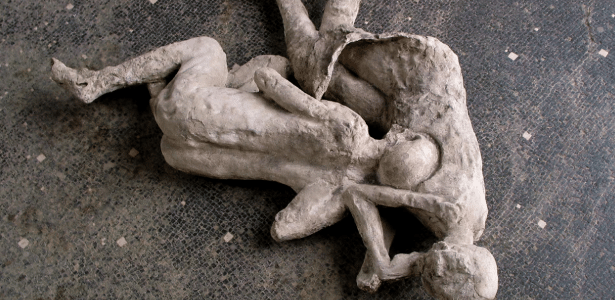The genetic data tells a very different truth about the gender and relationships of these people, compared to what was created around the middle of the 18th century, when archaeological investigations began in the city of Rome.
According to the authors of the study, the previously formulated assumptions were not reliable because they reflected a worldview and culture completely different from those at the time of the eruption, which occurred in the year 79 of the common era.
“We examined 14 templates, but we were able to obtain readable and usable DNA from only seven of them.” The results made it possible to accurately determine the genetic relationships, gender and ancestry of these individuals, but they differed significantly from what was estimated based on physical appearance and body position.
The genetic data also provided information about the ancestry of Pompeii‘s inhabitants: the people studied were mostly descendants of recent immigrants who came from the Eastern Mediterranean. This reflects, according to the researchers, the cosmopolitan nature of the Roman Empire, as well as the systems that encouraged movement and cultural exchange within it.
2024-11-10 11:34:00
#Mother #kissed #son #technologies #rewrite #history #Pompeii #eruption


